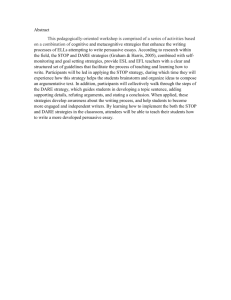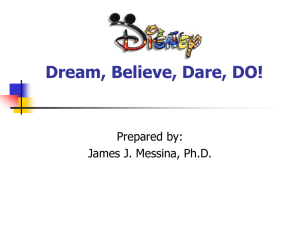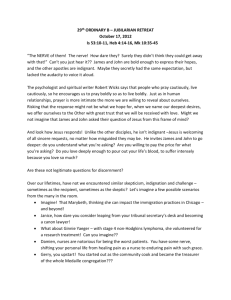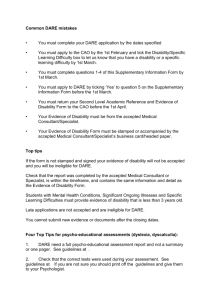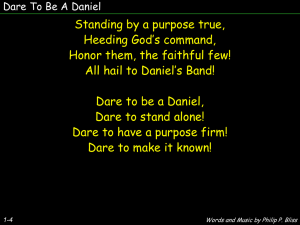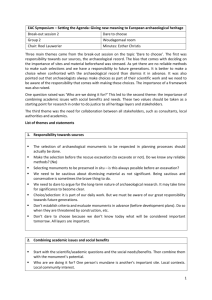ENG2163 Global English
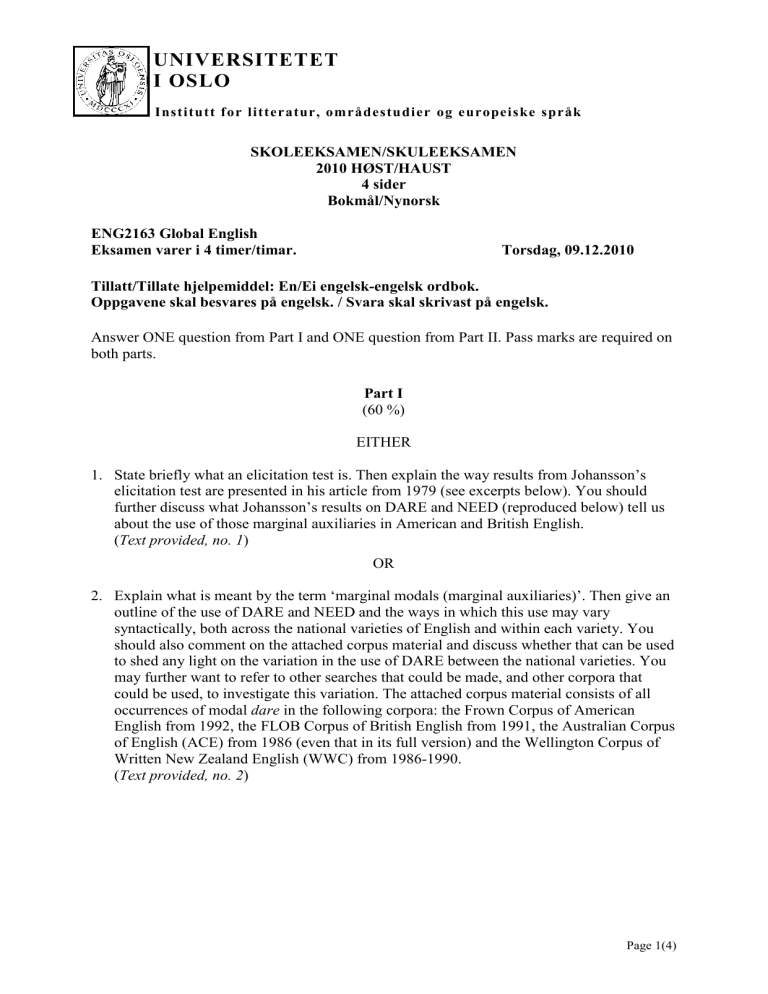
UNIVERSITETET
I OSLO
Institutt for litteratur, områdestudier og europeiske språk
SKOLEEKSAMEN/SKULEEKSAMEN
2010 HØST/HAUST
4 sider
Bokmål/Nynorsk
ENG2163 Global English
Eksamen varer i 4 timer/timar. Torsdag, 09.12.2010
Tillatt/Tillate hjelpemiddel: En/Ei engelsk-engelsk ordbok.
Oppgavene skal besvares på engelsk. / Svara skal skrivast på engelsk.
Answer ONE question from Part I and ONE question from Part II. Pass marks are required on both parts.
Part I
(60 %)
EITHER
1.
State briefly what an elicitation test is. Then explain the way results from Johansson’s elicitation test are presented in his article from 1979 (see excerpts below). You should further discuss what Johansson’s results on DARE and NEED (reproduced below) tell us about the use of those marginal auxiliaries in American and British English.
( Text provided, no. 1 )
OR
2.
Explain what is meant by the term ‘marginal modals (marginal auxiliaries)’. Then give an outline of the use of DARE and NEED and the ways in which this use may vary syntactically, both across the national varieties of English and within each variety. You should also comment on the attached corpus material and discuss whether that can be used to shed any light on the variation in the use of DARE between the national varieties. You may further want to refer to other searches that could be made, and other corpora that could be used, to investigate this variation. The attached corpus material consists of all occurrences of modal dare in the following corpora: the Frown Corpus of American
English from 1992, the FLOB Corpus of British English from 1991, the Australian Corpus of English (ACE) from 1986 (even that in its full version) and the Wellington Corpus of
Written New Zealand English (WWC) from 1986-1990.
( Text provided, no. 2 )
Page 1(4)
Part II
(40 %)
EITHER
3.
Give an account of the use of the two main verb forms referring to past time in English, the present perfect and the preterite. Then discuss how the distribution between the two verb forms seems to vary among the chief national varieties of English.
OR
4.
Outline the historical background of the English language in Australia. Then give an account of some of the grammatical characteristics of Australian English, focusing on
AT LEAST TWO grammatical features which are taken up in texts on the reading list for this course dealing with Australian English.
Text provided, no. 1
: Results presented in Stig Johansson (1979), ‘American and British
English grammar: an elicitation experiment’
Page 2(4)
Text provided, no. 2 : Occurrences of marginal modal auxiliary dare in Frown, FLOB, ACE and WWC
N Concordance File
1 How dare you come to Chinatown and walk through … ? frown_a frown_a 2 Noone in possession of his faculties and desirous of retaining them would dare drive down the lane into territory … .
3 Few stage directors would dare mount such a scene.
4 Only one whose hope is not in this world would even dare to contravene the present sacred order.
5 … when, in the exercise of our passion, we dare to anticipate a decisive agent.
6 How, in all seriousness, would you dare do that?
7 She can do what I would never dare ... Her eye discerns … .
8 He did not think that even the Soviet rulers would dare to accept the consequences.
9 ... if I did not dare have sex with my own girl-friend, I could scarcely imagine it with anyone else
10 questions we didn’t dare ask because we knew no one had the answers.
11 How dare you refuse to acknowledge the divinity of the one Lord above?
12 “You want a drink?” ”I don’t dare.” I couldn’t stop.
13 ”How dare you,” she whispered.
14 ”You wouldn’t dare.” “Sure and why wouldn’t he?”
15 … a pleasure one should not dare prolong, no matter what happiness one felt.
16 Kord didn’t dare glance over his shoulder.
17 … just to get the hell out of the rehearsal hall and not dare to come back until Thursday
18 How dare he ask such personal questions?
19 He did not, however, dare to attack most of the graft and licences.
20 … a bold move, which Labour ignores but dare not repudiate.
21 One principle is paramount. We dare not allow any European border to be changed by military force.
22 ‘Eyes I dare not meet in dreams’. frown_c frown_d frown_d frown_d frown_e frown_f frown_g flob_c frown_g frown_k frown_l frown_l frown_n frown_n frown_n frown_p frown_p flob_b flob_b flob_b
Page 3(4)
23 I did not dare to breathe the words ‘Civil Aviation’.
24 Adams could not get through on the telephone. He would not dare approach the house.
25 ”So I dare say she’s told you a bit about the video we’ve been doing.
26 Actually we hardly dare look at her now, the tiny typist, such power does she wield.
27 ”This is insufferable! How dare they treat one of us .. in this way. Intolerable!
28 ”Don’t you dare bring your father into this!”
29 ”Gracious heaven, don’t dare say a word!”
30 ”You will find it out soon enough, I dare say.”
31 “It had not crossed my mind, but I dare say you are right.”
32 “How dare you?” She wrenched herself away from him.
33 ”I dare say she is teaching herself as well as you.”
34 He found himself saying, ”How dare you wear fur?”
35 Should he dress up, or down? He didn’t quite dare ring Venice to ask her.
36 But goals were not the only reason Docherty would not dare to drop Soper.
37 Because ritzy Australian restaurants are terribly precious about their exclusivity, few parents would dare to take their young in case of sneers from maitre.
38 We didn’t even dare talk about doubt, wounds, aches and feelings.
39 … we would have been foolhardy to dare to lie down to sunbake and let the children loose at the water’s edge.
40 How dare you insult animals in this way?
41 ‘How dare you’, he said, ‘invoke the divine name to justify what you want to do!’
42 Why not dare to be different ?
43 If I had been at home I might have saved his life but it is of no use repining - I dare say Maher did his best …
44 After we have pierced the Pig’s body with ten thousand arrows will the monster again dare to grunt?
45 Perhaps I am in a way, because I dare not reveal my secret self.
46 ‘For you, Mrs Poultney, in those sparkling togs, it wouldn’t dare do otherwise.’
47 … and he dare not purge its quicksilver harshly, for fear of converting it to copper.
48 “How dare they!” screamed Julie and gradually the word was passed down the line.
49 But Hifa-oro-roa was angry that a man of no standing should dare to usurp chiefly privilege in this way.
50 ... and we children did not dare take liberties of any kind.
51 Would they dare to come over?
52 They were, dare I say it, a team of geriatrics
53 I dare say nearly all of us have at some time or other ...
54 ... dare she take off her cover and shakily stand and face him?
55
‘...why I... how dare you...’
56 ... though I dare not say this to her.
57 She didn’t dare look at Ronnie and Beth.
58 Tommy didn’t dare to step any closer. flob_p flob_p flob_p flob_r flob_r ace_a ace_a flob_g flob_l flob_l flob_n flob_n flob_n flob_p flob_p ace_a ace_b ace_b ace_d ace_e ace_g ace_p ace_p ace_p ace_s ace_w wwc_f wwc_g wwc_g wwc_g wwc_g wwc_k wwc_k wwc_k wwc_k wwc_l
Page 4(4)
